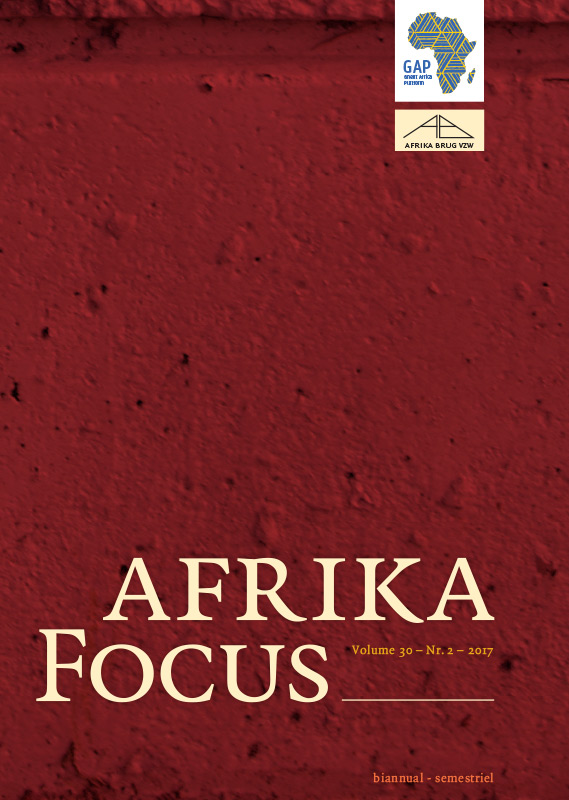Kongo, een voorgeschiedenis. Lucas Catherine. Epo, Berchem, 2017
DOI:
https://doi.org/10.21825/af.v30i2.8089Abstract
Lucas Catherine provides us with a brief history of pre-colonial Congo through a collection of tales and anecdotes from eight protagonists, all Belgians with the exception of Joseph Conrad, the writer, and Stanley, the journalist who once presumed he’d found Livingstone in the middle of the Congolese nowhere. The book’s bottom line is that even before colonialism extended its reach, the soon-to be colonised countries had histories, narratives that are seldom related. Through the observations and writings of early, pre-colonialist visitors, we become aware of the justi cations behind the expansion of in uence, how Congo was won, rst for King Leopold II, and then the Belgian state. We also get a whiff of the local avours, descriptions of culture and nature, and have to conclude together with the author that the capitalistic and paternalistic system (the latter com- ing with the missionaries and of cial administration) quickly led to the development of a system of racial exploitation. Catherine is quite adamant in his statements, but draws from a wealth of written sources to prove his point. An interesting read!Downloads
Published
How to Cite
Issue
Section
License
Authors who publish with this journal agree to the following terms
Authors retain copyright and grant the journal right of first publication with the work simultaneously licensed under a Creative Commons Attribution License that allows others to share the work with an acknowledgement of the work's authorship and initial publication in this journal.
Authors are able to enter into separate, additional contractual arrangements for the non-exclusive distribution of the journal's published version of the work (e.g., post it to an institutional repository or publish it in a book), with an acknowledgement of its initial publication in this journal.
Authors are permitted and encouraged to post their work online (e.g., in institutional repositories or on their website) prior to and during the submission process, as it can lead to productive exchanges, as well as earlier and greater citation of published work (See The Effect of Open Access).


